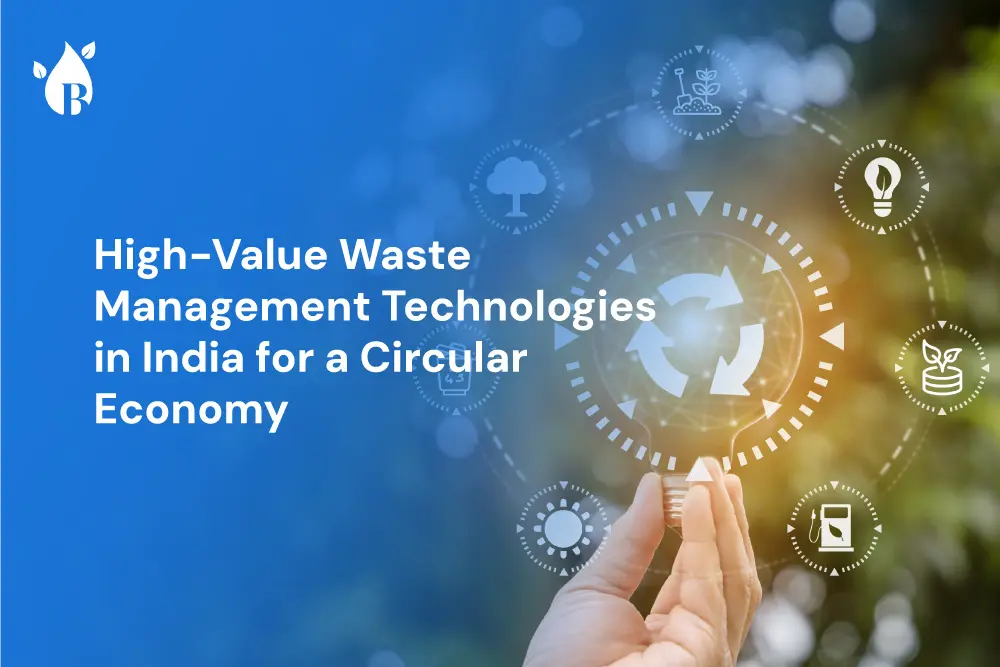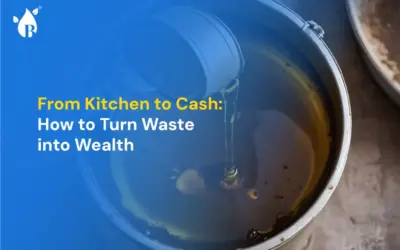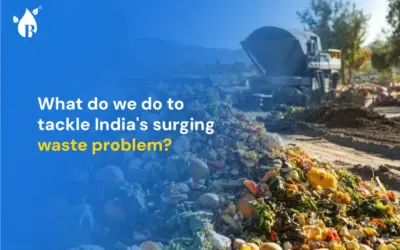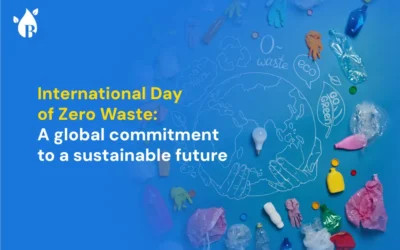
Read on to know how technologies are being implemented in Indian cities to optimise waste management and recovery.
Have you wondered what happens to the boxes your Amazon/Flipkart deliveries come in? What about the plastic covers of the groceries you buy? And the fruit and vegetable peels, leftovers, spoiled food from your daily cooking?
You would have noticed that your dustbins get filled twice as quickly as a few years ago. That’s a lot of waste. Most of it is high-value waste with potential to be reused or recycled.
On average, an Indian produces 670 grams of waste every day.
The amount of waste we generate keeps increasing because of consumerism and population growth. Our landfills have more waste than they can hold. It’s time to shift our perspective on waste and learn to extract more value out of it. Waste is not a problem to dispose of but a high value waste asset.
What Is High-Value Waste?
High-value waste are waste materials that hold plenty of economic, environmental, or societal value when properly managed. They can be transformed into new products, energy, or resources using waste management strategies and technology.
Here are some examples of high-value waste:
These practices contribute to a circular economy. They make the most out of high-value waste while saving landfill space and ocean dumping.
Technologies Used for High-Value Waste Management in Indian Cities
Rapid urbanisation and consumerism have led to the rise of waste generation in India. This pattern is not slowing down anytime soon. The only way ahead is to adopt innovative technologies to better manage the waste we generate. Reusing high-value waste reduces strain on the environment as well as contributes to energy and cost savings.
Here are some technologies Indian cities are using to manage high-value waste:
Upcoming Innovative Technologies for Waste Management
While sorting our waste, we get confused which type it has to go in. To reduce improper sorting at source, a Polish company designed a smart waste bin. It uses artificial intelligence to recognize the type of object and automatically sort it into the right bin.
Garbage bins have waste level sensors to alert when it’s almost full. Similarly, garbage trucks can be installed with weighing mechanisms to estimate the weight and optimise collection trips.
Korea based Ecube Labs has manufactured a solar-powered trash compactor. It compacts wastes in bins to hold up to 5x more than traditional bins. It increases the capacity and reduces collection trips.
Opportunities for High Value Waste Technologies in India
While a lot of technologies have improved solid waste management in India, other types of waste like used cooking oils, medical waste, construction and demolition need more attention.
Currently there are around 199 biomedical waste treatment plants in India. Most of the collected BMW is either incinerated, autoclaved or shredded. Incineration is the burning of waste in controlled spaces. Autoclave is killing pathogens and shredding is breaking it down into smaller bits. Surprisingly, only 6 of the 199 plants have deep burials. Though this space of waste management is not high value, it needs better technologies.
In construction waste, bricks , tiles, wood and steel are being retrieved. Although concrete and masonry waste which is more than 50% of waste is not recycled. Concrete and masonry waste can be sorted, crushed and recycled to make concrete for road construction and building materials. However, more than 70% of the construction industry is not aware of these techniques. Construction materials are getting expensive and hard to find by the day. Implementing effective high-value waste management strategies in this sector is the need of the hour.
Used cooking oil to biofuel plants are set up in India. But they are not operating at full capacity. This is because of the scattered availability of UCO. While the technology is readily available, awareness among people is limited. FSSAI estimates say that India generates around 3 million metric tons of UCO annually. And 60% of it goes back to the food chain. This is a huge threat to health. At Buyofuel, we are making a way to solve this issue. We connect UCO suppliers to biofuel manufacturers. Through this, UCO suppliers gain an income which will motivate them to sell it instead of reusing it. Biofuel plants also benefit by having a stable supply of UCO.
“We must give back to nature at least some part of what we take from it, instead of producing garbage.” – Bhupender Yadav, Minister of Environment, Forest and Climate Change
Overall, responsible consumption, awareness and education are also required along with technological advancements to revolutionise high-value waste. From GPS to AI, technologies have immense potential to shape the waste management in India. With better awareness, implementation, we will move towards a circular economy.
At Buyofuel, we are building a network of used cooking oil (feedstock) suppliers, biofuel manufacturers and consumers. Come, join the network, become a circular economy advocate and driver of change.



